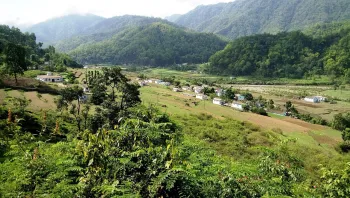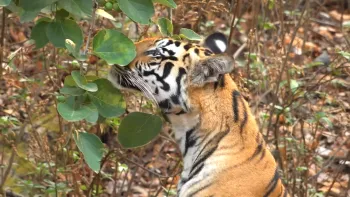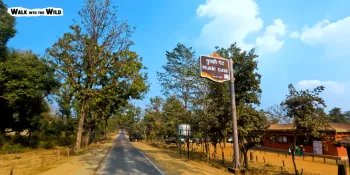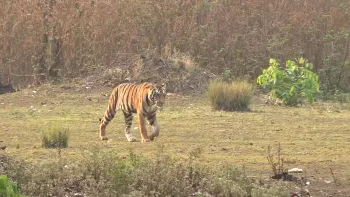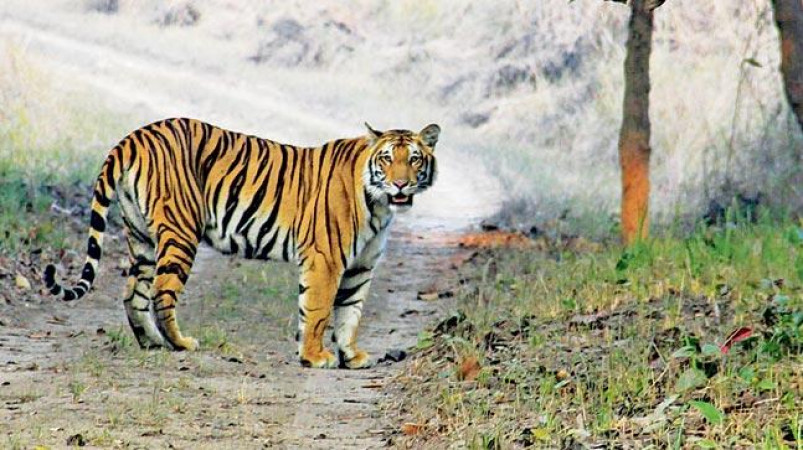
Dudhwa National Park
Duration
2 to 4 Days
2 to 4 Days
Best time to visit
Nov-Mar
Nov-Mar
Theme
Wildlife
Wildlife
Dudhwa National Park Travel Guide
Dudhwa National Park is a renowned national park located in the state of Uttar Pradesh, India. It is known for its diverse wildlife, lush greenery, and unique ecosystem. The park is home to various species of flora and fauna, including the Royal Bengal Tiger, Indian Rhinoceros, and Swamp Deer. Dudhwa National Park is a popular destination for nature enthusiasts and wildlife lovers due to its rich biodiversity and conservation efforts.Top Attractions in Dudhwa National Park
- Jeep Safari through the dense forests
- Elephant Safari to spot the majestic Royal Bengal Tigers
- Bird Watching to observe a variety of avian species
- Visit to the Dudhwa Tiger Reserve to witness the wildlife in their natural habitat
Dudhwa National Park is Famous for
Wildlife enthusiasts visit Dudhwa National Park for its diverse flora and fauna, including the Royal Bengal Tiger and Indian Rhinoceros.Top Attractions in Dudhwa National Park
- Jeep Safari through the dense forests
- Elephant Safari to spot the majestic Royal Bengal Tigers
- Bird Watching to observe a variety of avian species
- Visit to the Dudhwa Tiger Reserve to witness the wildlife in their natural habitat
What's Great about Travelling to Dudhwa National Park?
- Perfect destination for wildlife enthusiasts
- Opportunity to witness rare species in their natural habitat
- Scenic landscapes and serene environment
What's Not So Great about Travelling to Dudhwa National Park?
- Limited accommodation options
- Remote location may require long travel hours
- Weather conditions can be extreme
Travel Tips for Dudhwa National Park
- Obtain necessary permits for safaris in advance
- Follow safety instructions provided by park authorities
- Carry insect repellent and sunscreen
Important Dudhwa National Park trip information
- Ideal Duration: 2-3 days
- Best Time to Visit: November to May
- Nearby Airports and Railway Stations: The nearest airport is in Lucknow, and the nearest railway station is in Shahjahanpur.
Top 2 Places to visit in Dudhwa National Park
Per Person
24,800
*EXCLUDING APPLICABLE TAXES 4.8 Ratings
( 37 Reviews )
( 37 Reviews )
Per Person
3,499
*EXCLUDING APPLICABLE TAXES 4.5 Ratings
( 31 Reviews )
( 31 Reviews )
Per Person
2,82,000
*EXCLUDING APPLICABLE TAXES 5.0 Ratings
( 445 Reviews )
( 445 Reviews )
Per Person
14,250
*EXCLUDING APPLICABLE TAXES 5.0 Ratings
( 445 Reviews )
( 445 Reviews )
Per Person
22,500
*EXCLUDING APPLICABLE TAXES 4.8 Ratings
( 37 Reviews )
( 37 Reviews )
Per Person
18,500
*EXCLUDING APPLICABLE TAXES 5.0 Ratings
( 445 Reviews )
( 445 Reviews )
FAQ's on Dudhwa National Park
Q1: What is the best time to visit Dudhwa National Park?
The best time to visit Dudhwa National Park is from November to May. During this period, the weather is pleasant, and you have a higher chance of spotting wildlife. The park is closed during the monsoon season from June to October due to heavy rainfall and flooding.
Q2: Do I need a visa to travel to Dudhwa National Park?
Visitors to Dudhwa National Park need to obtain an Indian tourist visa. Make sure to check the latest visa requirements and apply in advance. Some nationalities may be eligible for e-Visas or visa-on-arrival, but it's essential to verify your specific visa needs before traveling.
Q3: What are the must-visit attractions in Dudhwa National Park?
Dudhwa National Park is known for its rich biodiversity and wildlife. Must-visit attractions include the Dudhwa Tiger Reserve, where you can spot Bengal tigers, Indian rhinoceros, and swamp deer. Other highlights are the Sathiana and Sonaripur areas, ideal for birdwatching and elephant safaris.
Q4: Is Dudhwa National Park a safe place to travel?
Dudhwa National Park is generally safe for visitors, but it's essential to follow park rules and guidelines. Avoid straying off designated paths, respect wildlife from a safe distance, and listen to your guide's instructions during safaris to ensure a safe and enjoyable experience.
Q5: What is the local currency in Dudhwa National Park and can I use credit cards?
The local currency in Dudhwa National Park is the Indian Rupee (INR). While credit cards may not be widely accepted within the park, it's advisable to carry sufficient cash for entry fees, safari bookings, and other expenses. ATMs are available in nearby towns for additional cash needs.
Q6: What is the local cuisine like in Dudhwa National Park?
The local cuisine in Dudhwa National Park offers a mix of North Indian flavors. Enjoy traditional dishes like kebabs, biryanis, and curries. Vegetarian options are also prevalent, with dishes like dal (lentils), sabzi (vegetable curries), and roti (flatbread). Be sure to try local sweets like peda and jalebi for a sweet treat.
Q7: What transportation options are available in Dudhwa National Park?
Transportation options in Dudhwa National Park include hiring a private vehicle, taking a bus or train to nearby towns like Palia Kalan or Dudhwa, and then arranging for local transportation to the park entrance. Once inside the park, guided safaris on jeeps or elephants are the primary means of exploring the wildlife.
Q8: Are there any cultural norms or etiquette I should be aware of when visiting Dudhwa National Park?
When visiting Dudhwa National Park, it's essential to respect local customs and wildlife. Maintain a respectful distance from animals, refrain from littering, and follow your guide's instructions during safaris. Dress modestly, especially when visiting nearby villages, and ask for permission before taking photographs of locals. Embrace the region's cultural diversity with an open mind and a spirit of curiosity.
Q9: I am a travel agent. How can I buy travel leads of Dudhwa National Park?
Register yourself as a travel agent at agents.tripclap.com and then you can buy travel leads to Dudhwa National Park once your account is approved. For more details contact our support team at +91-8069186564 or support@tripclap.com
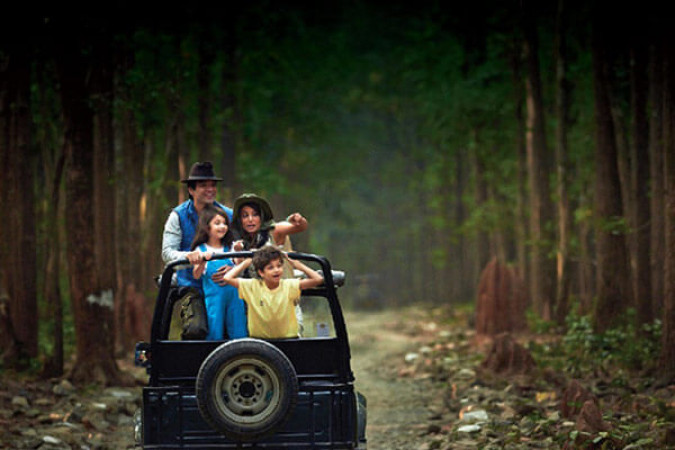
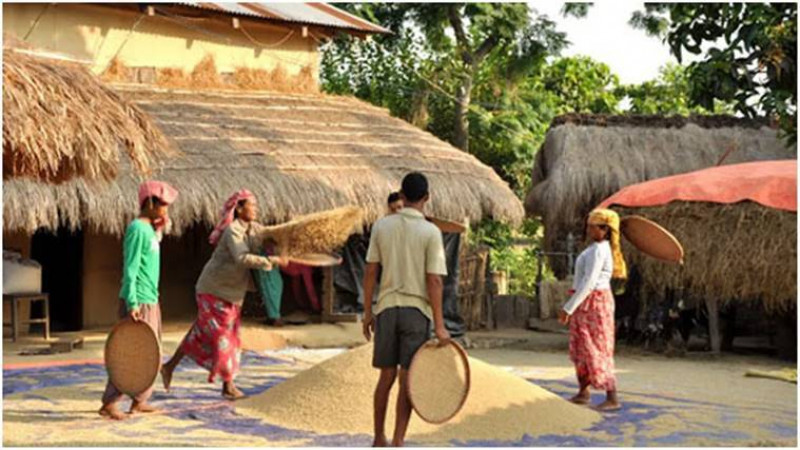
![Meghalaya with kaziranga 6N/7D tour package LD- 517577 [Based on 2 Adults]](https://static.tripclap.com/uploads/package/350X200/1763018166-1763018166-1051e.webp)
